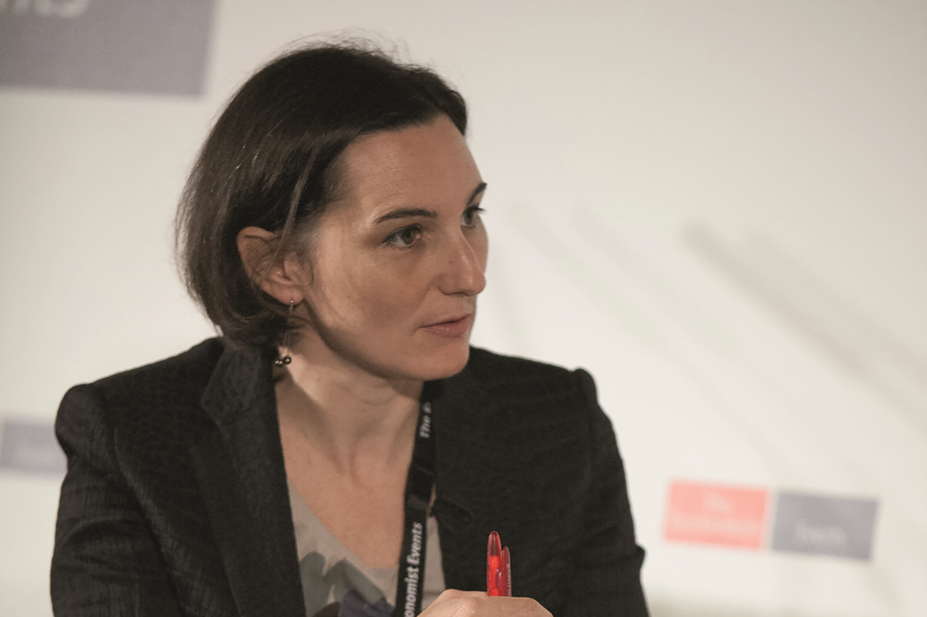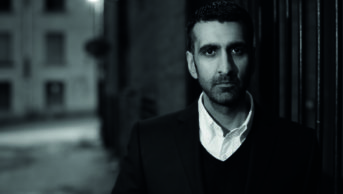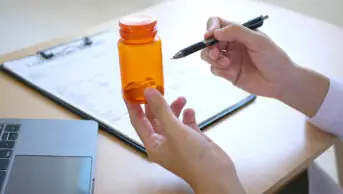
Economist Intelligence Unit
Annie Pannelay works as a consultant in the healthcare practice of the Economist Intelligence Unit — as a pharmacist, not a journalist.
What is your current role and how did you end up there?
I work as principal consultant for the healthcare practice at the Economist Intelligence Unit, a business within The Economist Group that provides industry, risk and country analysis across 200 countries worldwide.
When I finished my doctorate in pharmacy in France, I became a resident pharmacist in a teaching hospital. After getting this hands-on experience, I went to study business in order to understand how the whole healthcare ecosystem functioned. I was accepted into ESSEC, a top French business school, and had my MBA funded by a plasma manufacturer so that I could learn the industry viewpoint. I then worked for a venture capital fund, focusing on innovation in healthcare technologies. This experience in finance took me to Hong Kong, where I spent more than two years. I then moved to the US and founded a company in New York dedicated to helping small and medium life-science companies in their international expansion projects through mergers and acquisitions.
Back in Europe, I worked in market planning roles in the pharmaceutical industry, and then joined a strategic consulting company based in London, working for pharma blue chip companies. My role was to help them differentiate and succeed in a competitive market. I was brought in to the Economist Intelligence Unit to build its healthcare consulting practice. This role provides the opportunity to work with many of the health system stakeholders that I am already familiar with, including hospitals, the pharmaceutical industry and health policy makers. I now lead projects to support more efficient health systems.
What are your responsibilities and daily tasks?
I study the main trends that impact the system and help my clients articulate their needs. I design research projects when a sponsor is keen to fund research. That means I have to help clients focus on what they need to know to make the right decisions for their organisation.
Part of the work involves consulting with external experts. I regularly run expert advisory boards to provide up-to-date perspectives and guidance to our research, which covers a wide variety of topics, including studying the trend towards value-based healthcare and figuring out key activities to tackle specific diseases effectively.
I am often asked to present our research at conferences around the world. I also sometimes help our own conference team, which runs events focusing on healthcare, to identify expert speakers or moderate panel discussions.
I then ensure the team is organised to deliver what we have promised and support its work, providing guidance to more junior team members. That can be on project management tasks, sharing skills such as creating spreadsheets or preparing presentations, or helping them analyse the information we have collected to make them understand how the market works. For example, why doctors would choose one product over another, or what force within the system, which may be invisible from the surface, actually drives decisions.
What are your career highlights and what do you enjoy most in your role?
I enjoy meeting people who have found my work useful. The best part is when I see junior members of my team developing, making sense of the piece of research they have conducted and connecting it to the broader context. This is not an obvious thing, especially in healthcare where there are so many specialised topics, but identifying common themes and synergies is what makes us experts and what makes our daily work interesting and productive.
However, because I have such a variety of responsibilities, I find it hard to make time for self-initiated projects. I can get so busy with client work and coaching the team that the research that I want to conduct can get pushed aside.
What might others find surprising about your role?
People often do not associate The Economist Group with healthcare, so contacts who know me as a pharmacist look puzzled when I say where I work. One of the questions people frequently ask is “So you’re a journalist?” In fact, when I first heard about the role I had the same misconception. It took me a few days to contact the company because I did not understand how a pharmacist would fit with the group.
However, I now answer by explaining that I am a pharmacist and all I do is healthcare — there is a whole team focusing on healthcare, including public health specialists, clinicians, scientific librarians and another pharmacist.
What would you advise other pharmacists who might be interested in a similar role?
Mine is a consulting role with a public-facing dimension. One way to get into a similar role is to gain experience in building core skills, including conducting research, surveys, interviews and analyses, being able to build spreadsheet models, and communicating easily using slides and other methods.
The other route would be via the public health path, which could involve working with public bodies and conducting evidence reviews and research to support policy makers. Either way, the pharmacy degree is critical because it provides information about many elements of health systems, and what really makes a difference is to have real experience from different perspectives. I got that through a career path that took me to those different places, not just by studying it from the outside.
Gaining experience in a large company is always good for the CV, but I also found that working for a smaller organisation helps you develop more skills because you often have to work with limited resources, making you an essential team member.


